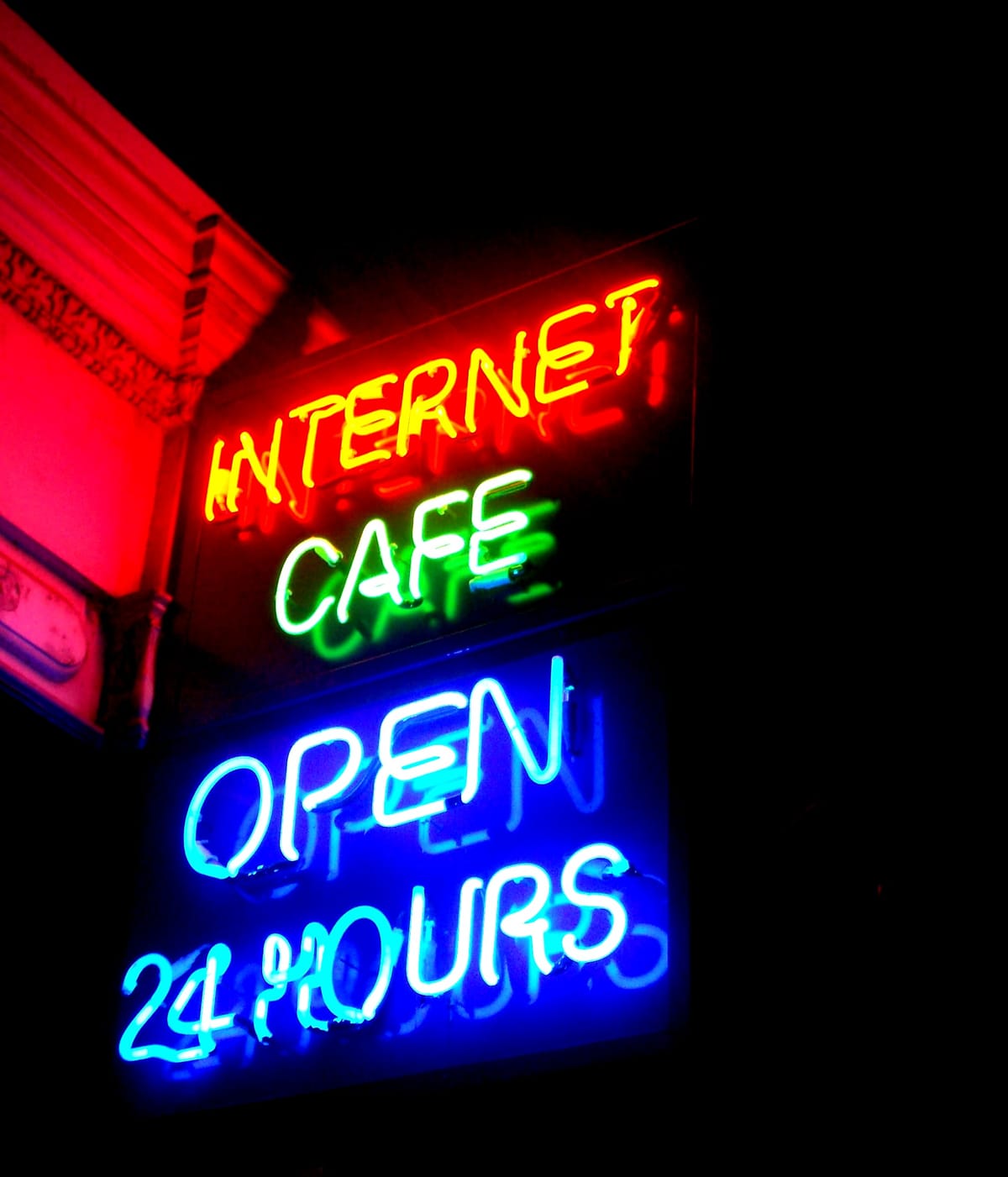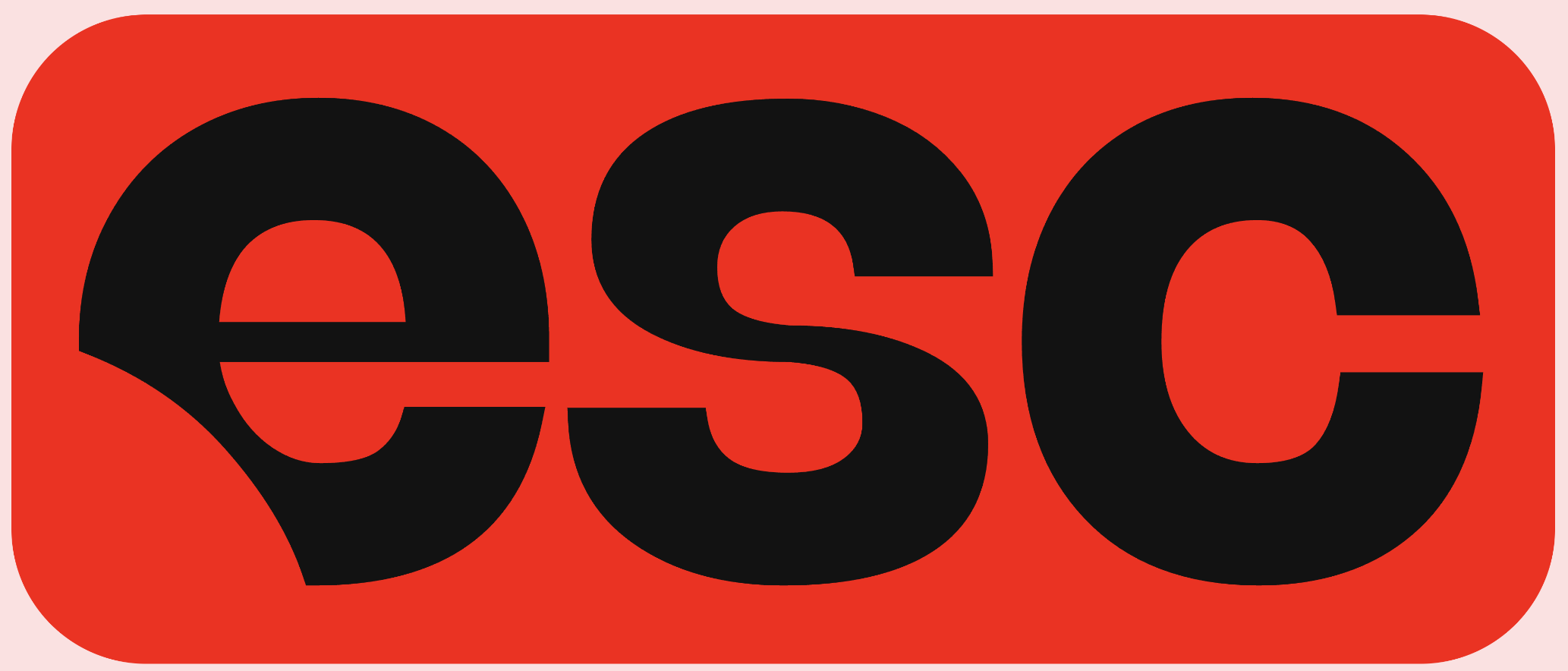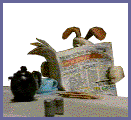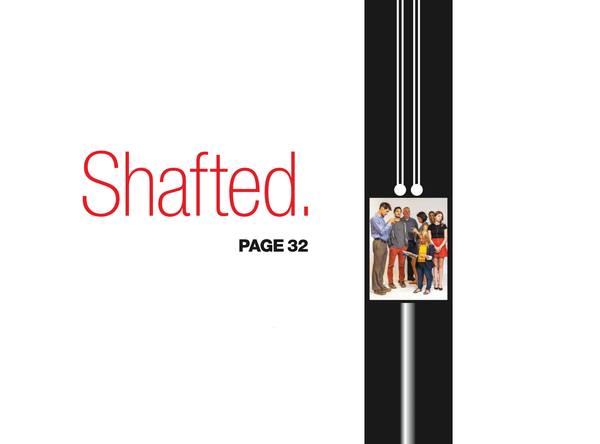RIP freelance journalism: Candid advice to the young writers the world needs to read
Every year, freelance journalism pays less. A typical gig today pays 80% less than the same assignment in 2001. It is no longer a sustainable career. It is, more often, a side-hustle, or the domain of the rich. But in the ashes, we have an opportunity to build a different kind of writing career.

It is essential for young writers to know that becoming a successful freelancer has long meant learning how to persist in a world that seems hostile to you succeeding, even in arguably trivial ways. For instance, imagine one’s bladder wants to burst open. Imagine one is straining all of one’s pelvic floor muscles. Imagine one has had three coffees and nervously drank the jug of tap water on the table; one badly has to go — and one must go now!
But there’s a problem: One is in a cafe. There are three options: A, pack up all of your belongings and risk losing the sought-after table by the outlet; potentially returning relieved but with nowhere good to sit. B, ask a stranger if they mind watching your things while you relieve yourself. Or, C, leave a few items at your table to keep your spot but tuck your laptop under your arm and hold your laptop awkwardly, avoiding it touching anything around the toilets. Indeed, you sit on the toilet with the laptop on your lap. It is one of the few times the laptop is actually on your lap.
You may see, young writer, that every choice you make in this career will have tradeoffs. B is my go-to. But a stranger is not always around. So, recently, I chose C, as there was no nearby stranger to cast a distracted eye over my belongings. I dashed. I unbuckled. I sat. Laptop on lap. I rebuckled. I dashed back. If there was an Olympic competition for the speed at which one can enter and exit public toilets and return to their table, freelance writers would, I suspect, win this thrilling sport. On this particular occasion, I had the feeling that I’d set a personal record. I would guess the time from table to toilet to table was less than 66.6 seconds.
But when I returned to my table, my work bag was stolen — the bag containing my keys, a pair of eBay Prada sunglasses, my medication, my phone charging cables, several different kinds of lip gloss, and among a few other odds and ends, the business cards bearing the name of my newsletter, ESC KEY .CO.
As someone who has experienced my share of petty theft — mugged in Barcelona, phone stolen the day after a Guardian Blind Date with no way to immediately text my date back, trinkets stolen by a Grindr hookup and so on — I, of course, have AirTags on every important object. So I immediately opened the Find My app and saw the thief had just left the cafe. I had used the toilet so quickly that there was a good chance I might be able to catch him. After all, had I not spent my career as a freelancer in cafes preparing for this very moment? Laptop tucked under my arm, I ran out the door as if I, well, had to go.
I watched the emoji of a handbag (👜) and a key (🔑) race up Mare Street on the map, ahead of me. Wearing impractical platform combat boots, I pounded the pavement. I wove in between groups of schoolchildren. I just avoided bodyslamming an older lady exiting a supermarket. After 10 minutes, I was far away from the cafe. There’s no way this dude is this fast, I thought, as the bag and key emoji continued at an unreasonable pace. Wheezing, asthmatically, I paused and leaned against a brick wall. He’s on a bus, I concluded. No toilet run, no matter how fast, could’ve prepared me for this. (I say “he” because the cafe manager later confirmed through eyewitness and CCTV footage that the thief was a white man.)
Defeated, unsure of what to do, I wandered back to the same cafe, where I went to the same toilet cubicle again. In a moment of spiteful desperation, thinking of the pathetic thief with a dozen ESC KEY .CO premium matte business cards, I cried — the least he could do is subscribe to my newsletter! I wish I was kidding. Actual tears. Actual desire that this could lead to a new subscriber, at the minimum. I wasn’t exactly serious, of course. But I also wasn’t exactly not serious, either. I wouldn’t complain if he had purchased an annual subscription with what he’d earn reselling the Prada frames on eBay. That’s how much being an internet writer has twisted my brain.
You, young writer, may pause at this point in this letter and ask yourself, why are they going on about trips to the bathroom? What relevance does this have? Is this really all the substance there is to the Shadelian school of writing?
To which I reply: This is, you may know, an anecdotal lede. And within this anecdote are two of the most important pieces of advice I can offer about freelance journalism — a career I’ve loved with all my heart and yet have, year after year, let go little by little.
🪦🪦🪦
The first piece of advice contained within this anecdote is this: Among the various kinds of freelancers working in cafes, freelance journalists likely earn the least — that is, if they do it on a full-time basis.
“The fact of freelance journalism is that it pays dramatically less than it used to. To the tune of 80% less than two decades ago.”
Working out of cafes isn’t so much a choice for the lion’s share of freelance journalists — cafes are often cheaper than a coworking space, which can fetch from £350 to £750 a month in London, where I’ve been based for more than four years. Many freelance writers I know can’t really justify the expense of a full-time coworking space; they have done the math and the tax deduction doesn’t really offset the way it cuts into your revenue. This, to be clear, is quite different from the experience of a salaried remote worker or a “digital nomad” who enjoys some time in cafes for the experience of working surrounded by strangers. That is often a choice. While many freelance writers work out of cafes because they like them, too, it’s also not exactly a choice.
The fact of freelance journalism is that it pays dramatically less than it used to. It’s to the point now that an assignment at a major publication might not pay minimum wage when you divide that rate by the time invested (e.g., pre-reporting, pitching, reporting, writing, editing, editing again, talking PRs down from libel allegations, following up with the editor a half-dozen times, editing again, chasing the $500 invoice two months after publication). You might actually be better off working in fast food; this is not hyperbole.
For the dwindling number of publications that still have generous freelance budgets, they pay about the same per word that they did two decades ago. And that’s when not adjusted for inflation.
Among publications, rates have always varied absurdly. But at the turn of the last century, before I was even writing professionally, the conventional wisdom about freelancing suggested that we should be earning $1/word to make a middle-class wage of around $50,000 — a wage many weren’t even making then, according to a 2001 report from the National Writers Union. (You may recall that in the fictional universe of “Sex and the City,” Carrie Bradshaw, a freelance journalist, had negotiated Vogue up from $4 a word to $4.50 a word; you may also recall she paid for a full apartment in Manhattan as a personal essayist, which is hilarious in retrospect.)
Between 2001 and 2025, the rate of inflation for the U.S. dollar is above 80%. That means that the same 1,000-word assignment that might’ve paid $1,000 at the turn of the century should now pay a little more than $1,800 in 2025 if it were adjusted for inflation. Good luck negotiating that.
Today $1/word is actually a hard rate to come by, even for seasoned and established freelancers. In fact, $.50/word is a more common rate.
A decade ago, when I was the lead editor at a media company based in Portland, Oregon, where I worked on several magazines and travel guides, the rate I paid was never less than $.50/word for freelancers. Depending on the amount of reporting required, rates were often more and included travel expenses, lodging and mileage. I knew then it wasn’t enough. Once at a happy hour, a freelance journalist friend who contributed to many of America’s leading publications, confided that he was tired of the “$500, 1,000-word assignment.” He was ready to leave freelance journalism entirely. And he did.
Even now, in 2025, $500 for 1,000 words remains a common rate. (If 2015 rates had risen with inflation, those same assignments would pay almost $700.) There are a few publications that have raised their rates, but they are few and far between. And they rarely assign with the frequency that would make it a sustainable gig.
“The best advice for freelance writers today is to be a rich kid or to marry well; this is not shade.”
Meanwhile, the costs of everything have gone up. In America, in particular, the costs of healthcare place an especially great burden on freelancers. Throughout the recent government shutdown back home, I’ve observed freelance writers who are arguably at the top of their field posting to Bluesky about how much their health insurance premiums will rise due to the expiring Affordable Care Act subsidies — doubling in many cases. Some have seen rates rise to more than $1,000 a month.
This is on top of the relatively high self-employment taxes that low- and middle-income freelance earners pay in the United States compared to other countries. U.S. freelancers must pay the federal self-employment tax rate at 15.3% on top of income tax and state and local taxes. That means a freelance writer in, say, New York might pay a higher effective tax rate than a freelancer on a similar income in the United Kingdom, where healthcare is single-payer and free at the point of service. I, for example, find my effective tax rate in the United Kingdom to be similar to the tax rates I previously paid in Oregon. But the overall drain on my income is less when considering I’m not paying for America's absurdly high health insurance. America is a hostile place to be a freelancer.
This means that the best advice for freelance writers today is to be a rich kid or to marry well; this is not shade. I’ve had seemingly wildly successful U.S. freelance journalists admit to me in confidence that their biggest career hack was their marriage, at least for the health insurance that comes with a salaried spouse. (The single tax is real.)
If you’ve not been lucky enough to be born rich, or marry well, then you will face a continual erosion of how much you make year over year if you commit yourself to full-time freelance journalism — that is, even if you can manage to get enough assignments to cover your rent. Sadly, the continued decline of media and the repeated layoffs have put further pressure on the market for freelance writing. There aren’t enough $500 assignments to go around, frankly. Adding even greater pressure is the rise of “AI-sterity” and large language models (LLMs) — and bosses pressuring staff to use chatbots. Even if LLMs can’t fully replace the work of human writers, which they cannot, they have been used as a cover for eroding budgets for both staff and freelancers.
This, then, is why a freelance journalist might feel compelled to chase the handbag (👜) emoji on foot to try and recover things that might be otherwise expensive to replace. It’s why they might have greater fear if they go to the toilet and leave their laptop on the table. Because it’s a big risk. Because if it’s stolen, they might not have the cash handy to simply buy another laptop. Because full-time freelance journalism is, indeed, a massively stressful and challenging career in 2025. It will be even more challenging, more stressful and pay less in 2026. And in 2027. By the 2030s, there will still be full-time freelance journalists writing for a few publications, but I suspect they will either have been born into wealth, married well or have moved somewhere a lot cheaper than where they currently live. (And our big cities are getting duller as a result.)
🪦🪦🪦
Freelance journalism is, in many respects, dead. By which I mean, the idea that you can make a reasonable middle-class income in full-time freelance journalism is largely over for the vast majority of freelancers.
“You probably have better chances monetizing a newsletter telling other people how to be a freelance journalist.”
There are still people hanging on, but where they’re not rich, they increasingly represent the very top of the field contributing to the very few publications that still pay reasonable rates, and even they are not surviving on freelance journalism alone. Despite the fact that our success comes with almost lottery-like odds, we could make a lot more money by switching to virtually any other job.
Put differently, you probably have better chances monetizing a newsletter telling other people how to be a freelance journalist than actually being a full-time freelance journalist. In this way, I do worry about the kinds of advice some of my peers give young writers. This is not a dismissal of the newsletter writers successfully sharing the conventional wisdom. Indeed, they show us one model of what the unconventional future writing careers might look like, even if that isn't what they're writing about.
I would underscore that I do not view this as a doomer take. Nor is it intended as a kind of gatekeeping, as anyone who looks can see: there’s not much left behind the gate. I’ve mostly stepped outside the gate myself.
I won’t pretend I’ve not had a successful career, including successful years in freelance journalism. When I made the switch to self-employment in 2018, I had left a senior editorial leadership role. Having observed the income models for the dozens of full-time freelancers I managed, I knew that I would have a portfolio career, as even in the 2010s, none of the freelancers I managed were making their full income from journalism assignments alone — they were blending adjacent skills together into the kinds of fulfilling service-based careers that are hard to explain to cab drivers.
For me, that’s included writing a column for a major magazine, being a contributing writer to many publications I’d once dreamed of writing for, and working as an editor and editorial director on a range of award-winning projects. But it's also included a whole lot of stuff I don't spend as much time telling people about. There were a few years where journalism took up the majority of my time, but it was not making up the majority of my income: I was making more money leading content strategy projects for clients; consulting on cultural strategy and trends projects; and experimenting with different kinds of entrepreneurialism.
Yes, the reason I’ve attained any kind of stability and success in my career has been in spite of journalism, and the more I’ve phased out freelance journalism for publications that don’t pay very well and replaced writing with other fulfilling outlets (such as ESC KEY .CO), the happier I’ve become.
Year over year, freelance journalism makes up a shrinking percentage of my annual income. The primary reason is, of course, the declining rates. Other reasons include exhaustion and the fact that, honestly, I’ve retreated to other kinds of work to manage burnout. I’ve found the state of corporate and venture-backed media increasingly demoralizing. That’s not to mourn some golden age. Not at all. But we can’t ignore the fact that the media is, through layoffs and folding important publications, censoring the very voices we need right now.
This is why I find myself torn when considering the death of freelance journalism. As a media worker who came of age straddling the print and digital eras, I don’t know that I ever really got to experience a proper shot at a full-time freelance writing career. (The media company where I previously led editorial has, in recent weeks, laid off the majority of its remaining editorial staff — sending more unemployed journalists into the freelancer pool, where budgets continue to shrink and disappear.)
On one hand, those writers who had successful careers in the faded era have a right to grieve what they’ve lost. As a society, we’ve not really mourned the potentially brilliant voices we’ve not heard because of how many young writers have been locked out of the field. This isn’t trivial. Our culture is flatter as a result. But on the other hand, the pity party isn’t helping anyone, including future writers.
I’m far more interested in thinking about what comes next. And I would encourage you, young writer, to do that too. Because while a truly profitable, full-time-for-publications freelance journalism career may increasingly be akin to winning the lottery, here’s one thing I’m certain about: we need to hear more young voices.
We need more young working writers.
What will such a career look like? It’s an open-ended question. That, to me at least, is as scary as it is exciting.
🪦🪦🪦
This is a wish that in the ashes of freelance journalism as we’ve known it, we may imagine and build something more inclusive, more independent, more in service of our readers in the aftermath. Many of us have already been carving out dynamic and fulfilling careers as we’ve worked through freelance journalism’s long, ’80s power ballad-style fade out. You can build a fulfilling career, too. But you might need to change your idea of what that career will be. And you probably won’t get rich. But I really want you to succeed at it, if that’s what you really want.
Which brings me to the second piece of advice embedded within the anecdotal lede: No, to my knowledge, the thief did not subscribe to my newsletter. But the metrics you use to define success in this new-new media landscape will look very different from conventional wisdom on how to be a working writer.
Indeed, there’s a whole industry around teaching the conventional ways of freelancing. That advice isn’t wrong. You should read up on it, chase opportunities, build your bylines, get experience writing for editors.
But if you expect it to pay your bills, you’ll be on a fast path to burnout.
When I say freelance journalism is dead as a career, I do not mean that freelance journalism is something you should not pursue. What I mean is that your freelance journalism becomes something that you do to establish your reputation, increase visibility and reach new audiences. I hate to put it like this, but you do it for the exposure and the critical experience of working with editors more than the money — because, after all, there’s less and less money in it.
Pitching will remain an important skill. Learning how to write for a wider audience and for each publication’s distinct voice remain important, too. But the metrics of a successful career will have less to do with the number of pitches you send each week and the number of assignments you get from editors.
Rather, the metrics might instead look like your newsletter list growth rate. That is, if you experiment with a model of independent publishing where you become a solo media company. I emphasize if because that’s only one of a range of models you might pursue. Depending on the model your career follows, the metrics you focus on may look very different from the ones I’m looking at in my career.
I admit: Some longtime freelance journalists will choose to quit the field entirely rather than becoming, essentially, entrepreneurs or influencers or something else. Many do not want to become those things. Many do not want to think of themselves as solo media brands. And that's their choice. To be fair, it is hard, and this is not the same kind of disruption that we saw before.
“Surviving in this new age will require skills they rarely teach you in journalism or creative writing programs.”
Yes, prior media disruptions did mean reduced rates for freelancers; old-school freelancers have an adage, “print dollars are digital dimes,” but at least the digital era did bring with it a momentary wave of publications with budgets. The shift we’re talking about now is, perhaps, choosing to become your own publication. On many levels, this is a radically different kind of career than freelance journalism. That’s not a critique, but I’ll be honest, having had many freelance journalist friends in my career: this likely appeals to a different kind of person than was previously drawn to freelance journalism. To them, leaving the field entirely isn’t that dissimilar to shifting to these new models of working, so many will continue to leave.
But for people who have a drive to be working writers, they will succeed in large part based on their metabolism for change, for evolution, for reinvention.
Surviving in this new age will require skills they rarely teach you in journalism or creative writing programs. It’ll also require tenacity — managing burnout, imposter syndrome and mental health in fresh ways, as you follow platform shifts; maybe learning how to produce and market “info products,” at risk of sounding reductive about the words you’re selling; and defining what success looks like on your own terms.
If that also excites you at least as much as it scares you, then give it a shot, young writer. I am not here to tell you what path you should follow or what you need to do to be successful on that path. Frankly, I don’t even know what the next year of my career will look like.
I am only saying two things with confidence: Firstly, freelance journalism, as we’ve known it, is dead — accepting that reality is the first step to figure out what your career as a working writer will look like. Secondly, there are new and emerging ways to be a working writer, which come with their own challenges, algorithmic gatekeepers and, yes, opportunities.
🪦🪦🪦
I’m sure there will be working writers in our future. I hope that includes writers who aren’t nepo babies and who do not come from wealth.
“It won’t be easy. It will be even harder if you, too, grew up working class and with intersecting marginalized identities.”
There are so many examples for what success might look like in this new age, and that can be overwhelming. You don’t have to figure it all out right now. In fact, it’s better if you “build in public,” as sometimes insufferable product designers like to say. But it’s true. Keep an open mind. Experiment. Iterate. Write a lot. Take an entrepreneurial business class. Study up on the new media models. Follow people who are killing it in different ways. Learn from the best. I need you — we need you — to try and prove there’s a way forward. Because we need your voices.
It won’t be easy. It will be even harder if you, too, grew up working class and with intersecting marginalized identities. You’re going to work harder than your peers, whose privileges the world will mistake for merit, as has long been the case. I wish I could change that. I can’t. But I also know if anyone can do it, young writer, it is you. I need you to believe that, too. I’ll be cheering you on.
How will you make it? That’s your question to answer, but I’m certain it will involve at least a few hours a week at a cafe.
Thus, my final word of advice: As inconvenient as it is, always choose A. Pack up everything when you go to the toilets. And if you don’t, at least wear more practical shoes in case you stupidly dare to chase down a thief — something I should certainly advise against. Especially if you have asthma and the thief is onboard a getaway double-decker bus.





